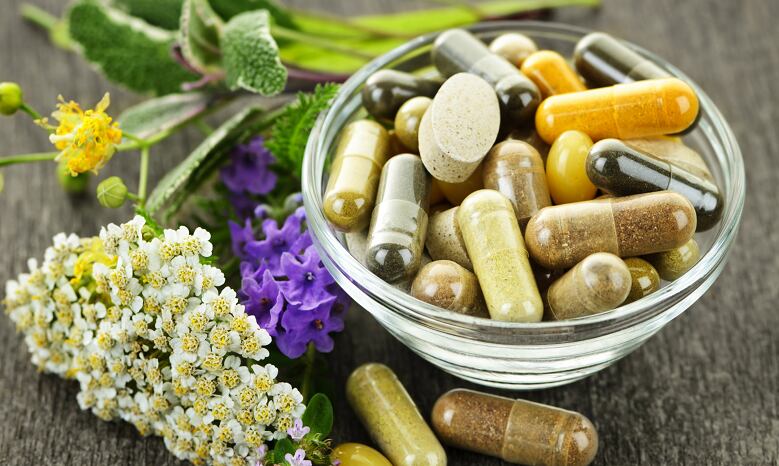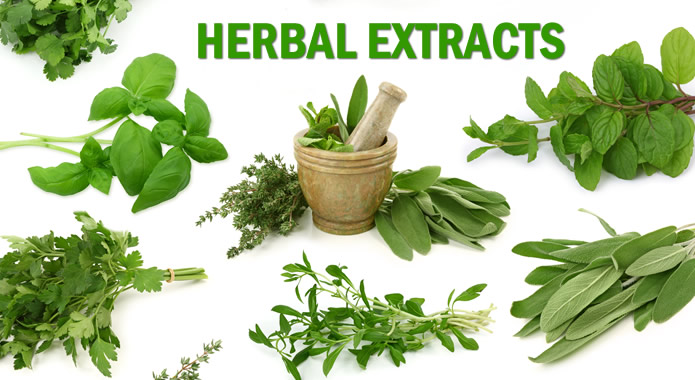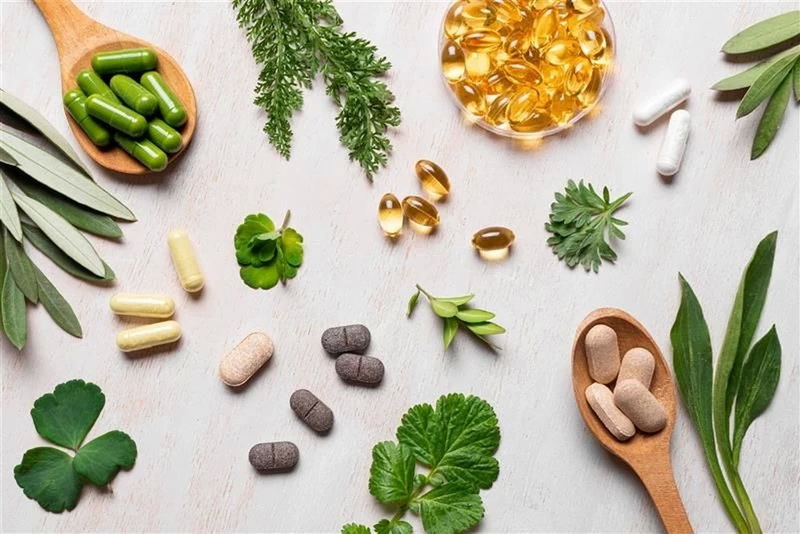Content Menu
● The Historical and Scientific Foundation of China Botanical Extracts
● Top Uses of China Botanical Extracts in Modern Medicine
>> 1. Antimalarial Treatment: Artemisinin from Sweet Wormwood
>> 2. Cardiovascular and Cerebrovascular Disease Management
>> 3. Anti-Inflammatory and Cognitive Enhancement
>> 4. Cancer Therapy and Adjunctive Treatment
>> 5. Women's Health and Hormonal Balance
>> 6. Digestive and Respiratory Health
>> 7. Immune System Support and Anti-Viral Properties
>> 8. Skin Health and Anti-Aging Applications
>> 9. Mental Health and Stress Relief
>> 10. Future Directions and Research
● Conclusion
● Frequently Asked Questions (FAQs)
>> 1. What makes China botanical extracts different from Western herbal medicines?
>> 2. Are China botanical extracts safe to use alongside conventional medicine?
>> 3. How are China botanical extracts typically administered?
>> 4. Can China botanical extracts help with chronic diseases?
>> 5. How is the quality of China botanical extracts ensured?
China botanical extracts, derived from traditional Chinese medicinal plants, have played a pivotal role in the advancement of modern medicine. These extracts, obtained from various herbs and plants native to China, possess a wide range of therapeutic properties that modern science continues to explore and validate. In this comprehensive article, we delve into the top uses of China botanical extracts in contemporary medical practice, highlighting their applications, benefits, and ongoing research. Alongside detailed explanations, relevant images and videos will enrich your understanding of these powerful natural remedies.

The Historical and Scientific Foundation of China Botanical Extracts
Traditional Chinese Medicine (TCM) has a history spanning thousands of years, with botanical extracts forming the cornerstone of its therapeutic approach. Unlike Western medicine, which often isolates single active compounds, TCM utilizes complex herbal formulas tailored to individual patient needs, emphasizing balance and holistic health. Modern techniques have allowed scientists to isolate and study these extracts, confirming many of their health benefits and integrating them into evidence-based medicine.
Top Uses of China Botanical Extracts in Modern Medicine
1. Antimalarial Treatment: Artemisinin from Sweet Wormwood
One of the most celebrated successes of China botanical extracts in modern medicine is artemisinin, extracted from Artemisia annua (sweet wormwood). Discovered by Tu Youyou in the 1970s, artemisinin and its derivatives have revolutionized malaria treatment worldwide. This extract exhibits potent antimalarial activity with high efficacy and low toxicity, earning Tu Youyou the Nobel Prize in Physiology or Medicine in 2015.
Key points:
- Artemisinin's discovery was based on ancient Chinese texts describing low-temperature extraction methods.
- It rapidly clears malaria parasites and is now a global standard in antimalarial therapy.
- Derivatives like artesunate and artemether enhance treatment effectiveness.
2. Cardiovascular and Cerebrovascular Disease Management
China botanical extracts have significant applications in treating heart and brain vascular diseases. For example, Salvia miltiorrhiza (Danshen) is widely used in China to improve blood circulation, reduce blood stasis, and protect the heart.
Highlights:
- Danshen extract helps prevent and treat ischemic heart disease, stroke, and angina.
- The Compound Danshen Dripping Pill has undergone clinical trials in the US and China, showing positive results in angina management.
- Extracts exhibit antithrombotic, vasodilative, and cardioprotective effects.
3. Anti-Inflammatory and Cognitive Enhancement
Several China botanical extracts are recognized for their anti-inflammatory and neuroprotective properties, making them promising agents in managing neurodegenerative diseases such as Alzheimer's.
Notable extracts:
- Centella asiatica (Gotu Kola) improves memory, reduces oxidative stress, and alleviates inflammation.
- Dendrobium catenatum exhibits anti-inflammatory effects and supports cognitive function.
- Other herbs like Magnolia officinalis and Withania somnifera also contribute to memory enhancement and mood regulation.
4. Cancer Therapy and Adjunctive Treatment
China botanical extracts are increasingly studied for their anticancer potential and their role in reducing chemotherapy toxicity.
Examples:
- Extracts from Coptis chinensis (golden thread) show anti-tumor activity and help mitigate chemotherapy side effects.
- Formulations like PHY906 are under clinical trials as adjuncts to chemotherapy, improving patient tolerance and outcomes.
- The holistic approach of TCM combines multiple herbs to target cancer cells and support the immune system.
5. Women's Health and Hormonal Balance
Extracts such as Angelica sinensis (Dong Quai) and Radix astragali are traditionally used to manage gynecological issues including menstrual disorders, anemia, and menopausal symptoms.
Pharmacological effects:
- Regulate menstrual cycles and alleviate dysmenorrhea.
- Enhance blood circulation and immune function.
- Provide antioxidant and neuroprotective benefits.
6. Digestive and Respiratory Health
China botanical extracts also play a vital role in treating digestive and respiratory ailments.
- Herbs like ginger root and licorice root improve digestion, reduce nausea, and soothe gastrointestinal discomfort.
- Ginkgo biloba extract helps reduce lung inflammation and improve oxygenation, beneficial for asthma and allergies.
- Mint leaf and mulberry leaf extracts reduce mucus production and congestion.

7. Immune System Support and Anti-Viral Properties
China botanical extracts are also widely recognized for their ability to enhance the immune system and combat viral infections. Extracts from herbs such as Isatis tinctoria (Ban Lan Gen) and Lonicera japonica (Honeysuckle) have been traditionally used to treat colds, flu, and other viral illnesses.
- Ban Lan Gen extract exhibits antiviral properties against influenza viruses and has been used in formulations to reduce fever and inflammation.
- Honeysuckle extract contains compounds that inhibit viral replication and support immune response.
- These extracts are often included in herbal teas and supplements aimed at boosting immunity during seasonal outbreaks.
8. Skin Health and Anti-Aging Applications
Botanical extracts from China are increasingly incorporated into dermatological products due to their antioxidant and anti-inflammatory properties. Extracts like Paeonia lactiflora (White Peony) and Glycyrrhiza glabra (Licorice Root) are popular for skin health.
- White Peony extract helps reduce skin redness, improve hydration, and promote collagen synthesis.
- Licorice Root extract is known for its skin brightening effects and ability to soothe irritation.
- These extracts are used in creams, serums, and masks to combat signs of aging and protect against environmental damage.
9. Mental Health and Stress Relief
Several China botanical extracts have adaptogenic properties that help the body manage stress and improve mental well-being. Herbs like Schisandra chinensis and Rhodiola rosea are valued for their calming and energizing effects.
- Schisandra extract supports adrenal function and enhances resistance to stress.
- Rhodiola extract improves mood, reduces fatigue, and enhances cognitive function.
- These extracts are often used in supplements aimed at promoting mental clarity and emotional balance.
10. Future Directions and Research
Ongoing research continues to explore new applications and mechanisms of China botanical extracts. Advances in biotechnology and pharmacology are enabling the development of novel formulations and delivery systems.
- Nanotechnology is being applied to improve the bioavailability and targeted delivery of botanical compounds.
- Clinical trials are expanding to validate traditional uses and discover new therapeutic potentials.
- Integration with Western medicine is fostering a holistic approach to patient care.
These developments promise to enhance the efficacy and acceptance of China botanical extracts in global healthcare.
Conclusion
China botanical extracts have profoundly influenced modern medicine, offering effective treatments for a range of conditions including malaria, cardiovascular diseases, neurodegenerative disorders, cancer, women's health issues, immune support, skin care, and mental health. Their integration into contemporary healthcare exemplifies the successful fusion of ancient wisdom and modern scientific validation. As research advances and new technologies emerge, the potential of these botanical extracts continues to expand, promising a future where natural remedies play an even greater role in global health and wellness.

Frequently Asked Questions (FAQs)
1. What makes China botanical extracts different from Western herbal medicines?
China botanical extracts are often used in complex formulas based on individualized diagnoses, focusing on restoring balance and treating root causes rather than isolated symptoms. They utilize all parts of plants and are prepared in ways that maximize potency and synergy.
2. Are China botanical extracts safe to use alongside conventional medicine?
When prescribed by trained professionals, China botanical extracts are generally safe and can complement conventional treatments. However, it is important to consult healthcare providers to avoid interactions and ensure proper dosing.
3. How are China botanical extracts typically administered?
They can be taken as decoctions, capsules, tablets, tinctures, or applied topically. Decoctions are traditional and highly effective, but concentrated granules and capsules offer convenience.
4. Can China botanical extracts help with chronic diseases?
Yes, many extracts have been shown to support chronic disease management, including cardiovascular conditions, neurodegenerative diseases, and cancer, often improving quality of life and reducing side effects of conventional therapies.
5. How is the quality of China botanical extracts ensured?
Quality is maintained through strict sourcing, standardized extraction processes, and compliance with Good Manufacturing Practices (GMP). Third-party testing and certification further guarantee purity and safety.






























